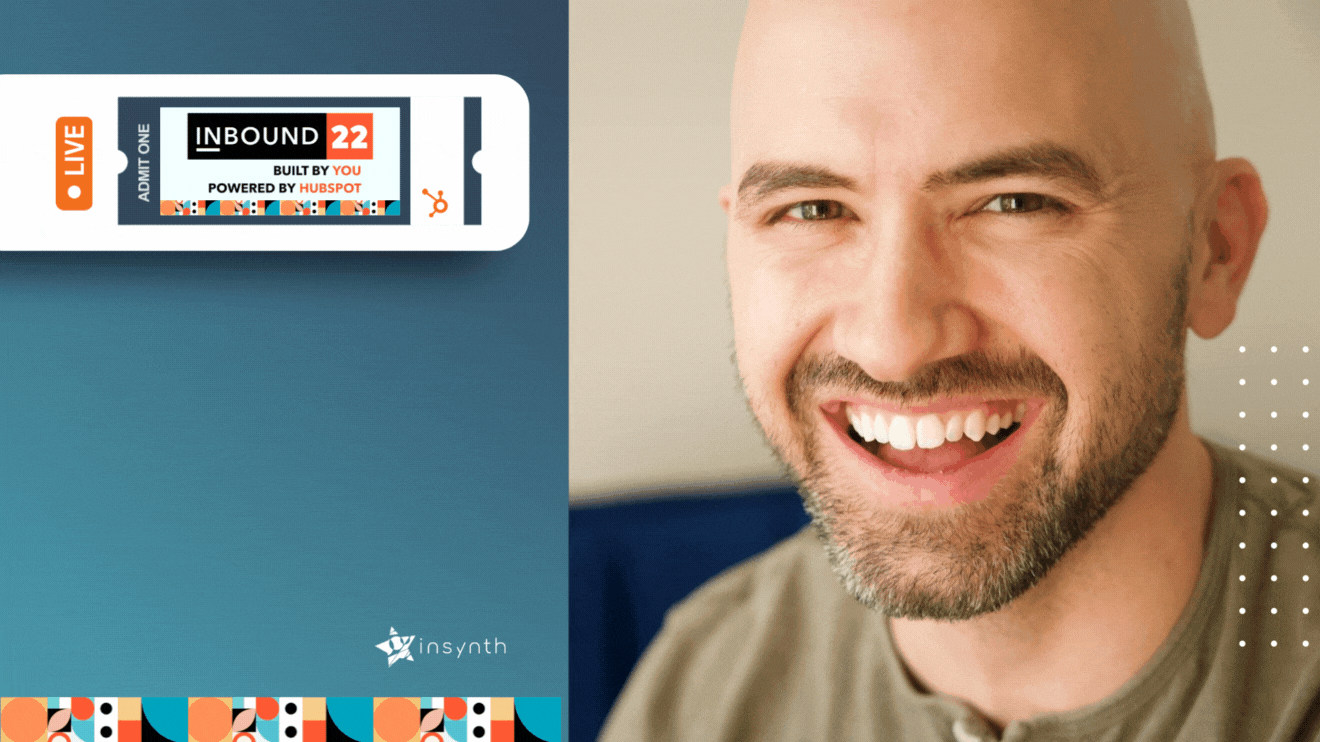
LIVE FROM #INBOUND22
If you’ve ever turned on a podcast microphone and recorded yourself asking someone else questions about their life and work, you know that interviewing is far more than an innate ability. In this session at INBOUND22, former journalist and long-time podcaster Michael Ashford explained how to master your interview technique to create powerful conversations.
Michael started with explaining the common challenges that podcast interviewers face. Everyone thinks they can turn on a mic and record a podcast, but doing it in a skillful way is more difficult. These are the common problems that make for bad podcasts:
A lack of interview preperation. Reading their book, familiarising yourself with their work, or doing a pre-pod interview if there is no way to get to know their perspective otherwise)
Pre-planned questions. This throws off the natural flow of conversation. It interrupts the conversation and makes the interview feel forced. Instead, determine which topics you want to talk about.
Trying to confirm what you already know. Asking closed or leading questions that lead to a preconcieved idea of the guests perspective. Avoid this. Be open to the conversation going in unexpected directions.
Pointing the spotlight back to yourself. Don't jump in with your own perspective. Give them time to answer. And focus on drawing out the nuances of their perspective. Resist the urge to jump in and comment on what they have said.
These are the things that make for a bad interview. They will stop your podcast from growing.
The purpose of podcasting is to grow. Grow revenue. Grow audience. Grow in understanding.
Nailing the Interview Basics
The fundementals
1. What do you write down?
You should try not to use pre-thought-out questions. But there is no need to be idealistic - don't get rid of ALL your pre-planned interview questions immediately, but work towards this. Try using topics instead of questions. Be aware of moments to go "off script" - follow the rabbit hole. Notes and prepared topics are reset buttons, not crutches
2. Your first question is not a throwaway
Your first question is your lede (don't ask "tell us about yourself" - this should be in your intro). You need to do thorough research to identify the lede, before your interview. Then you can turn your guest into a storyteller, instead of just covering the basics. Try to get them to relax, open up, talk freely, evoke emotion
The most important thing is to get your guest to talk about things they care about. Research enough to know what that is, and then focus on drawing it out throughout the course of the interview.
3. Get great at follow-up questions
Approach the conversation like getting coffee with a friend. Just ask the next easiest qustion. Don't apologise for going down a rabbit hole.
Also, don't act like you're listening. Furrowing eyebrows and aggressive grunts don't substitute for actual attention and empathy. Non-performative, active listening is key.
4. Ask shorter questions
Long questions often cause confusion. Confusion means they revert to easy canned answers. Short questions are often unanticipated and immediate. A long question can be appropriate, but make sure that it's still only one question. This may mean you need to give a little more context. Make sure it's clear at the end, what you want them to answer.
5. Take notes
It all comes back to the reporter's notebook. Constantly take notes: interesting things they say and points you want to come back to. Then refer back to the to help you stay organised and structured, but also develop the conversation naturally.
6. Practice and study yourself
It's hard to do, but it's worth it. Athletes watch recordings of wins and losses. Do the same with your podcast. Note missed opportunities or gaps in the flow of the conversation. Go back and "review the game tape".
Mastering the Art of the Interview
1. Do your prep work
A great interview is born before a question is ever asked. Great research is the easiest way to establish rapport. They should feel like "this is going to be different than any other podcast that I've done".
If they have a book, read the book. You want to go beyond what's in the book and dig into the context of why they wrote it.
Check out their social media accounts.
Look for patterns and anomalies. This will help you understand what's interesting and important to them.
2. If you must interrupt, make it count.
Use interruptions like ghost pepper hot sauce - very sparingly. Use it for emphasis, not to interject your own perspective. Otherwise, it's distracting. It's annoying. And it will derail your guest's train of thought.
3. Clarify
These questions are extensions of follow-up questions. This question looks backward. It revisits what they'd said previously and tries to draw out more insight. This helps them break out of canned, trite, default answers.
4. Flow between weighty and lighter questions
Not every question has to be super heavy. We all need a chance to reset. Both the interviewer, the guest, and the audience.
5. Give space
Get comfortable with silence. Silence is your friend. This space in between words is incredibly powerful and useful.
6. Tie up loose ends
Look at your notes. Ask outstanding questions. Ask: "is there anything I should have asked?" or "What question do you wish you were asked more?" It gives them the chance to bring about the conversation on their terms. A natural closing point.
Conclusion
This session was extremely helpful to me. I started a podcast a while back. Recently I listened back to their recordings, and realised it's not as easy as I thought it was. My interview skills were rough. This session helped outline a really professional approach to podcast interviewing.
If you are thinking of starting a podcast, try using the above tips, and let us know what you think.
